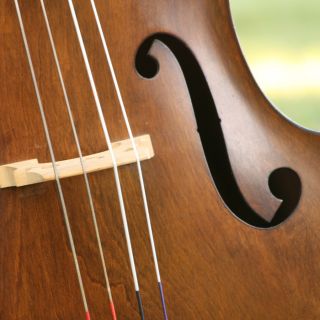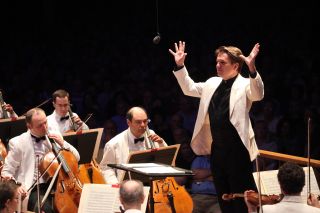Stress
Relaxing Music: Q&A with Conductor Keith Lockhart
The Boston Pops conductor suggests music to relax by.
Posted September 23, 2012

Listening to relaxing music is a popular and proven way of easing stress. Indeed, studies have shown that music can reduce stress and anxiety in a wide range of situations, from prepping to undergo surgery to driving in rush-hour traffic. “Soothing music can help people slow down and feel calmer,” says Samuel Gladding, PhD, a professor of counseling at Wake Forest University. "It's a practical solution to the manic, frantic pace of modern life."
Of course, not all music is meant to be relaxing. In fact, much music is expressly designed to have the opposite effect: engaging your mind, arousing your emotions, and setting your heart racing.
So what constitutes good music to relax by? Depending on your reaction, the New Age answer to that question might relax you delightfully, hypnotize you into a stupor, or set your teeth on edge. But, clearly, it’s not everyone’s cup of herbal tea. If you’re looking for other ideas—and perhaps hoping to broaden your horizons—here’s some advice from Keith Lockhart, conductor of the Boston Pops.
Keith Lockhart leads the Boston Pops (Hilary Scott) Do you have a favorite composer of relaxing music?

Keith Lockhart leads the Boston Pops (Hilary Scott)
Do you have a favorite composer of relaxing music?
Keith Lockhart: The way someone responds to music is a highly personal reaction, so the way that I respond may not be the way that another person does. However, there are certain composers whose music takes me to a calmer place, removed from the vicissitudes of daily life. One of them would be the twentieth-century English composer Ralph Vaughan Williams.
Is there a musical instrument that you find especially soothing?
KL: Some instruments that sound very relaxing are anything but for me, because I’m always putting myself in the shoes of the performer instead of just listening to the performance. But if I had to pick an instrument that would allow me to relax, it would be the cello.
The sound quality, or timbre, of the cello doesn’t have rough edges, and its mode is very singing and reminiscent of the human voice. One choice for listening to something relaxing would be the Bach Solo Cello Suites—a gorgeous example of music that is very calming.
What other qualities do you look for in relaxing music?
KL: You don’t want music that changes mood or character rapidly, because that kind of thing jerks you out of your reverie and makes you pay attention to what’s going on. It would be like trying to relax in a room where the lighting kept getting brighter or dimmer. You would be paying attention to the shifts in light, so you would never really be able to get into yourself.
Instead, you want music that establishes a mood and stays in it for a sustained period of time. One example would be the Debussy Prelude to the Afternoon of a Faun. It sets an evocative mood from the very beginning and never really leaves that mood for the entire nine minutes of the piece.
Why does relaxing music often have a slow tempo?
KL: There are studies showing that just listening to a fast-paced, exciting piece of music can raise your blood pressure, heart rate, [and breathing rate]—and the opposite is true as well. Music has such an amazing ability to create visceral responses in its audience.
Linda Wasmer Andrews is a writer who specializes in health, psychology, and the intersection between the two. Follow her on Twitter. Like her on Facebook. Visit her online.


